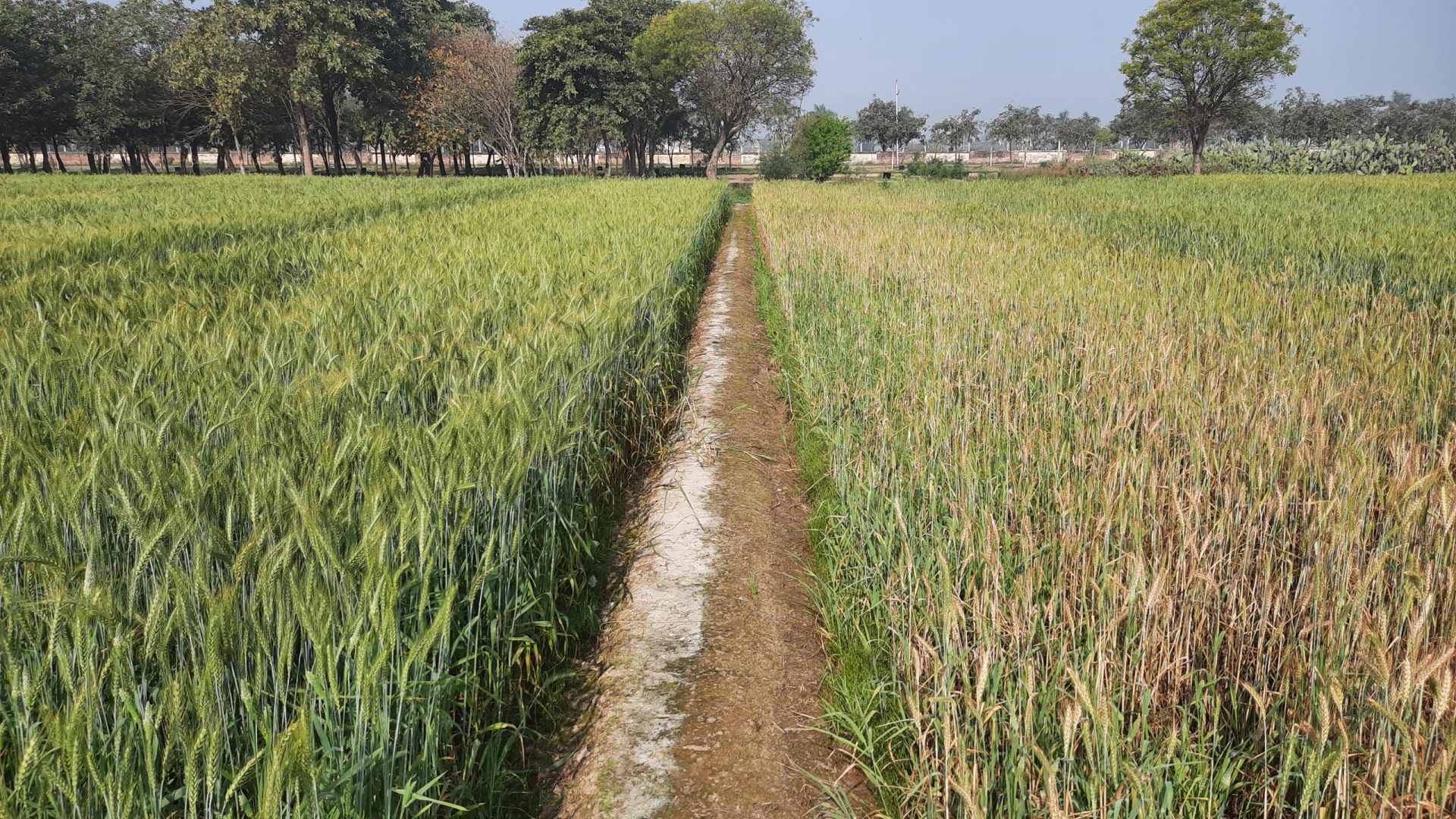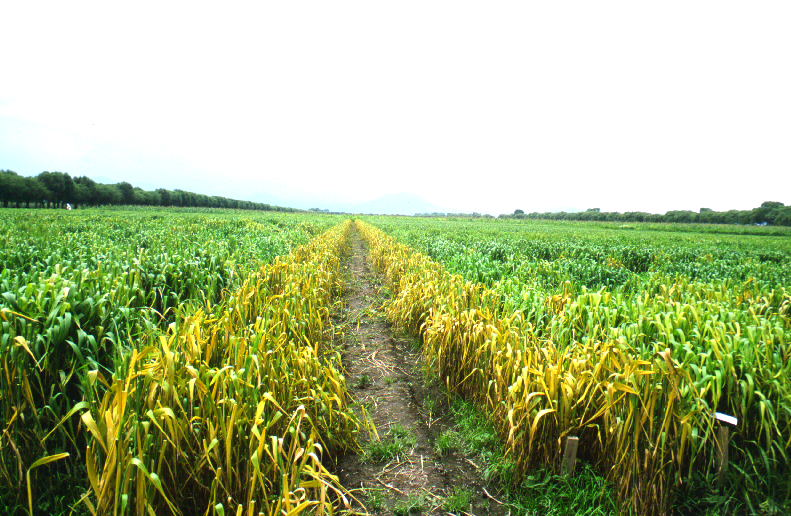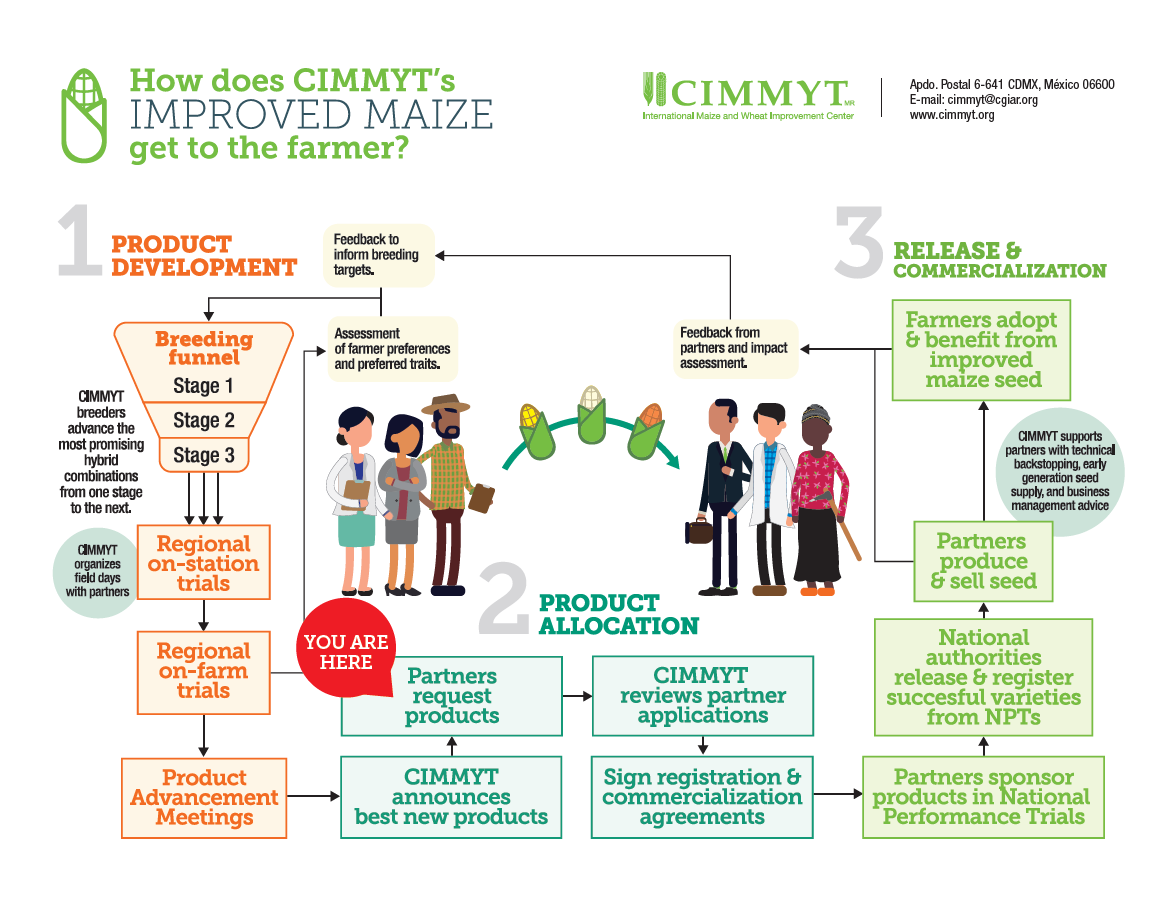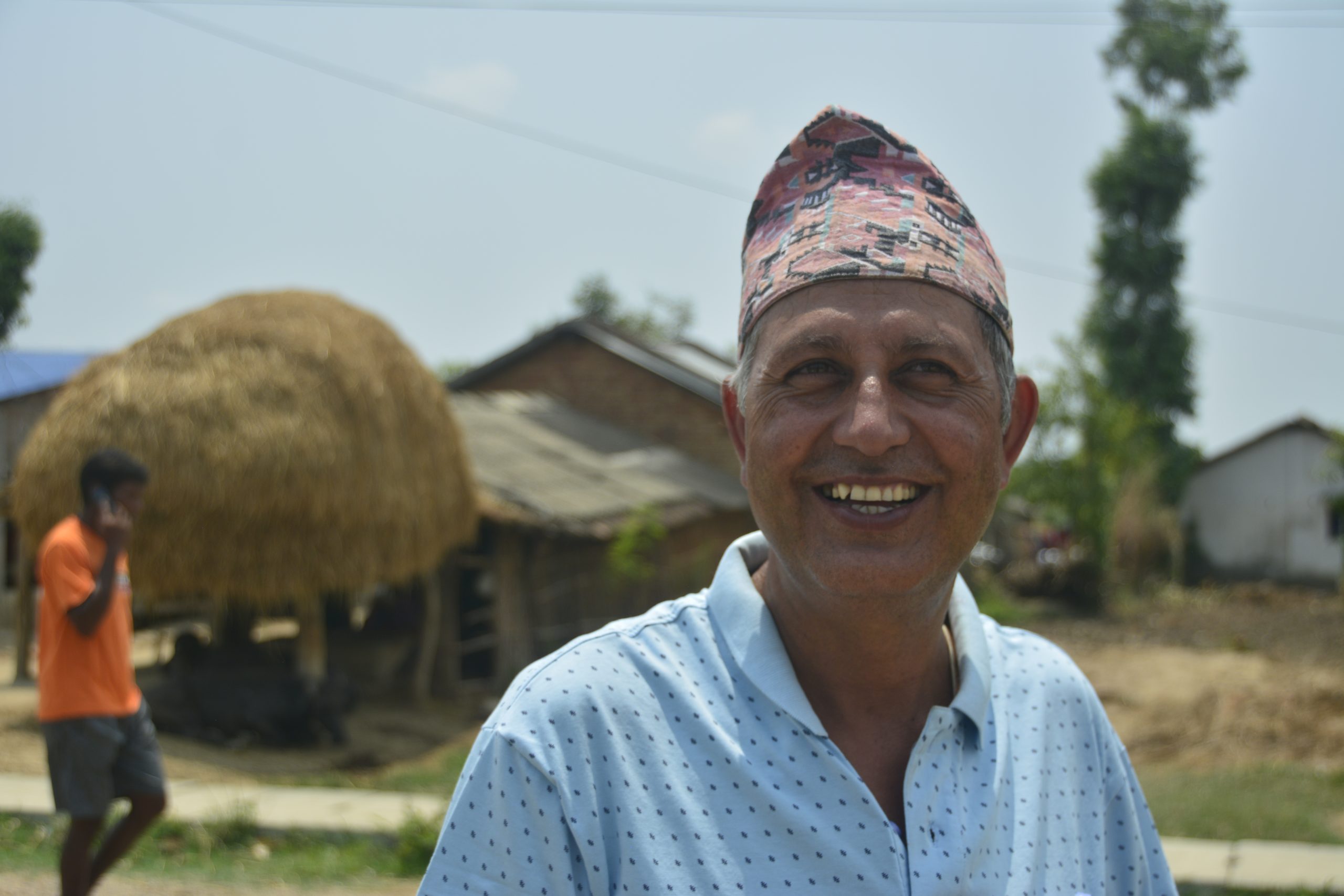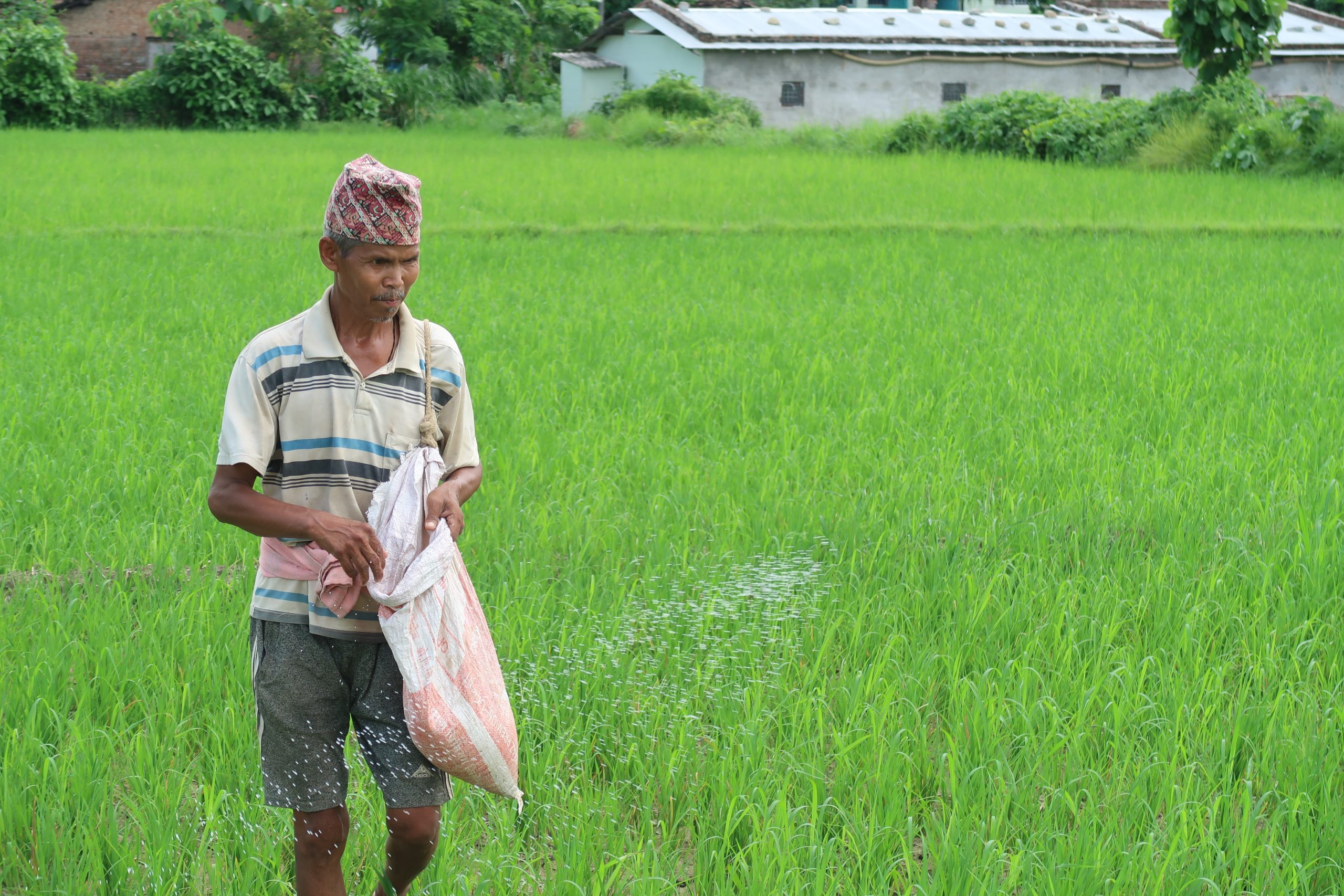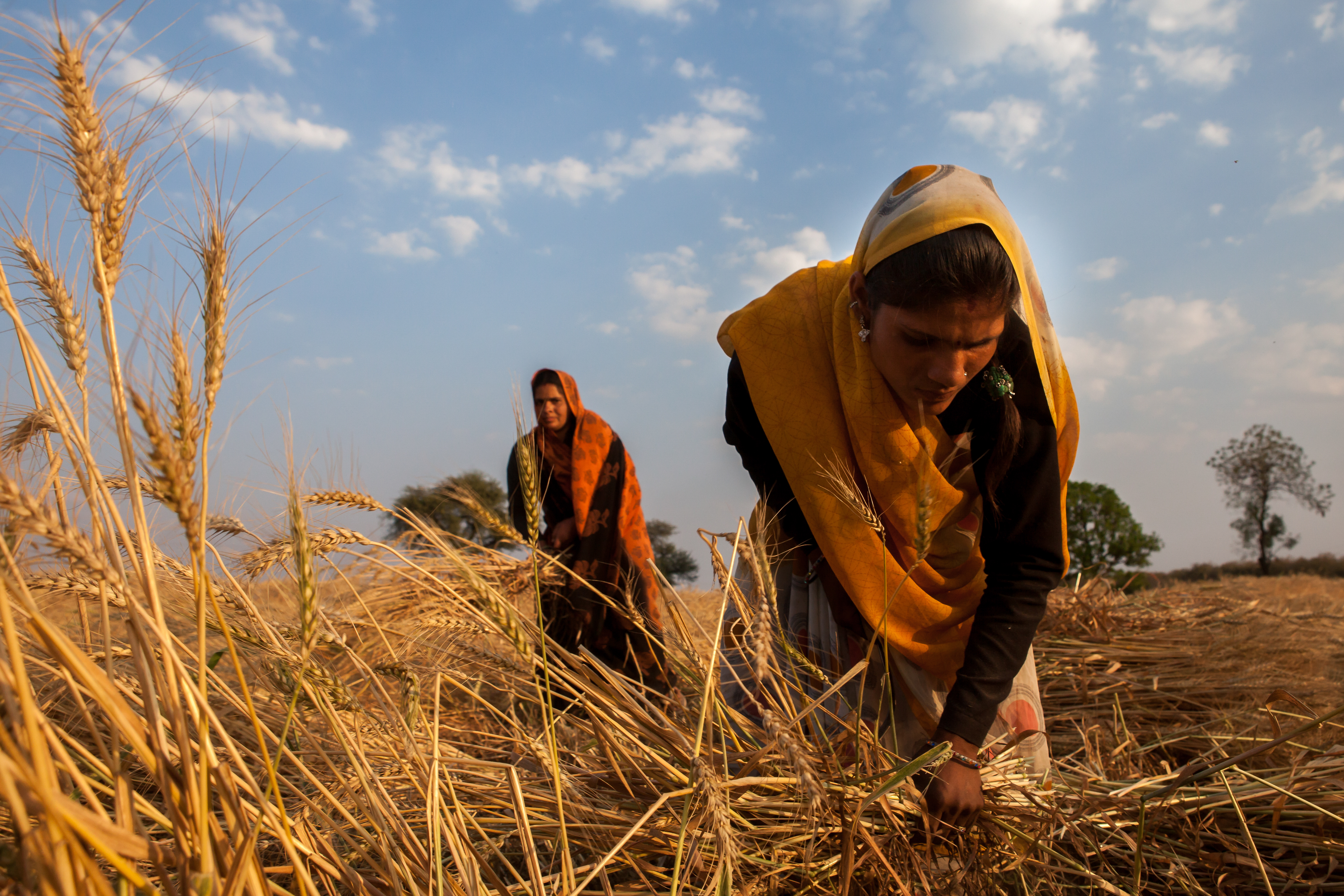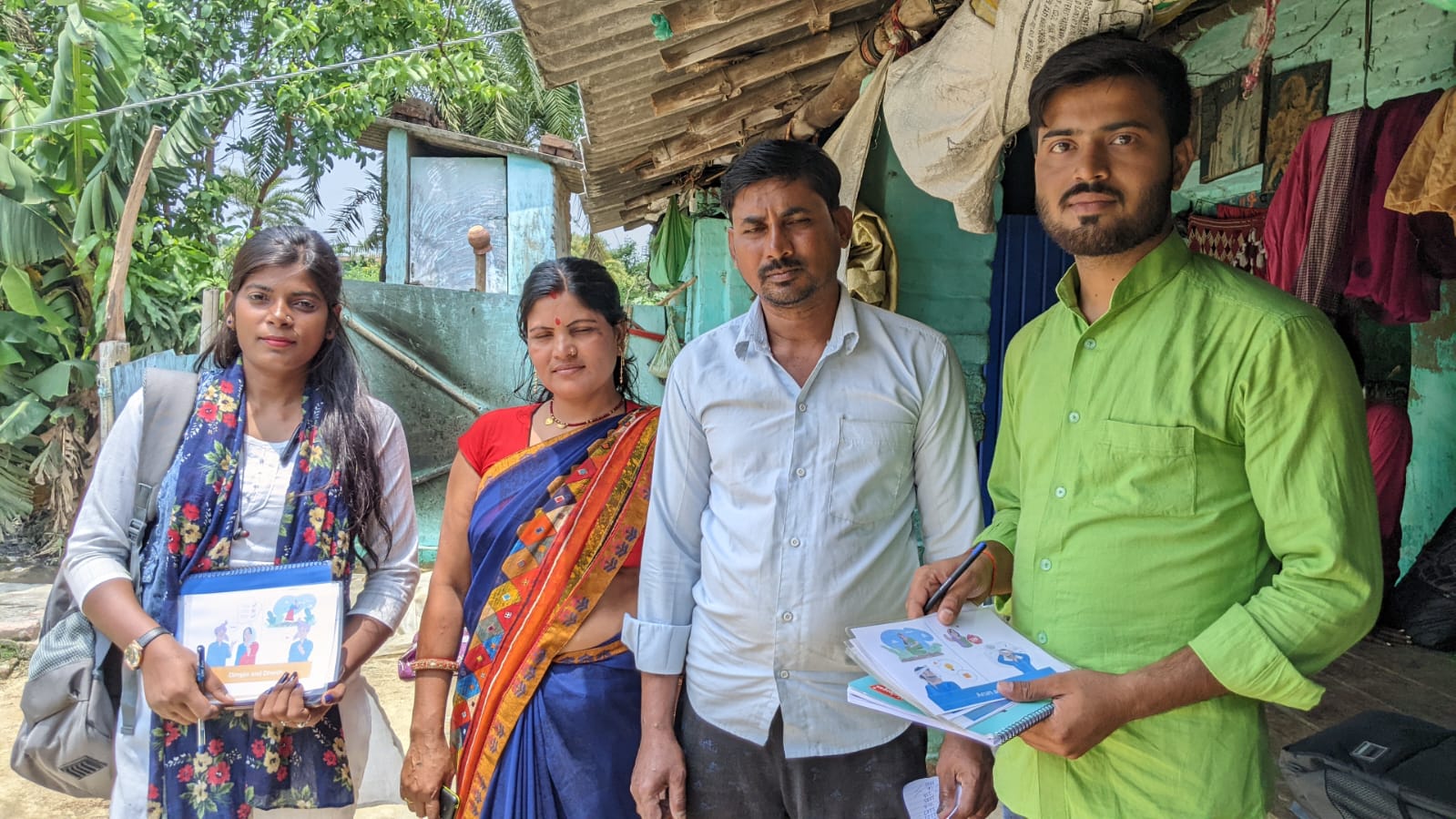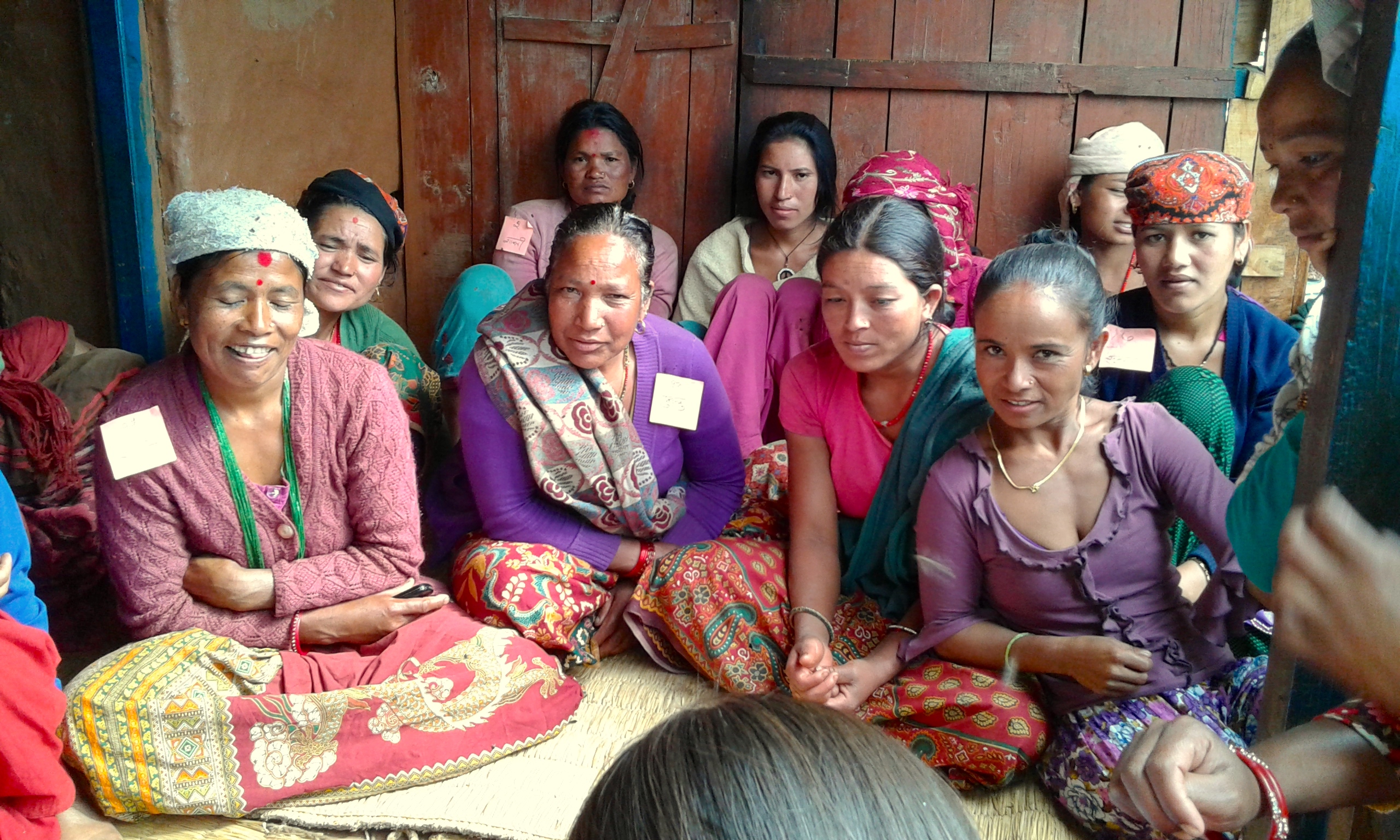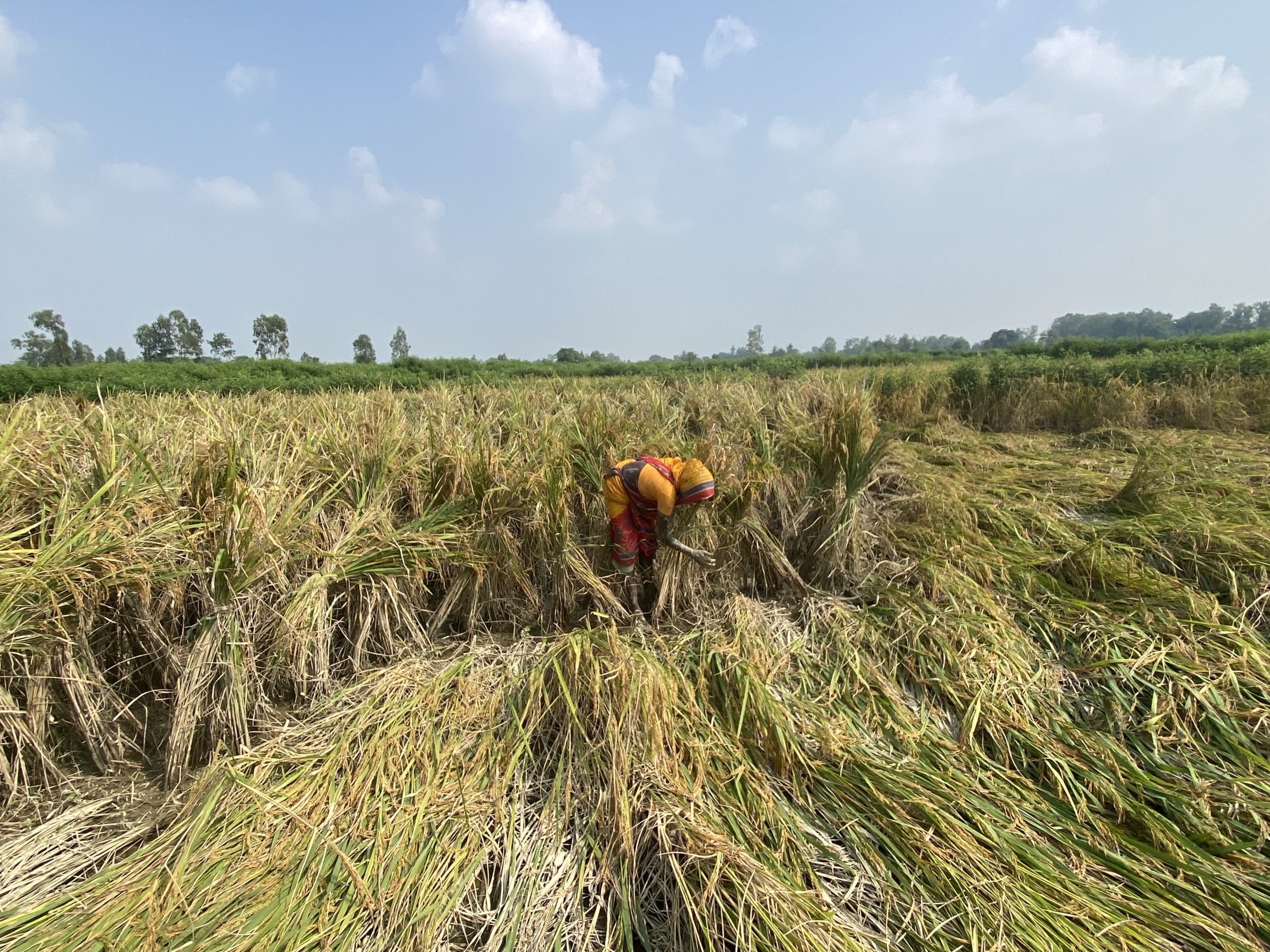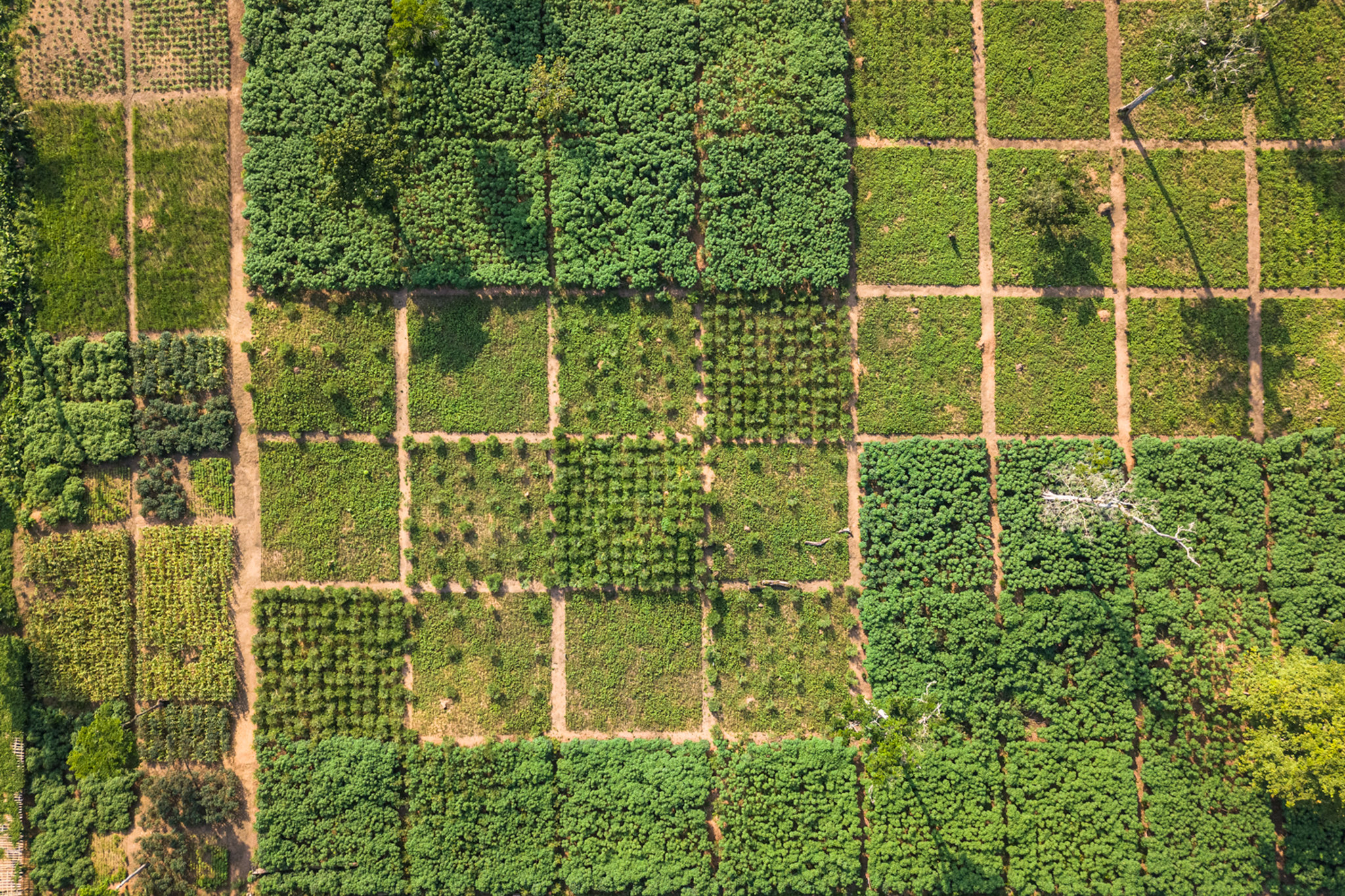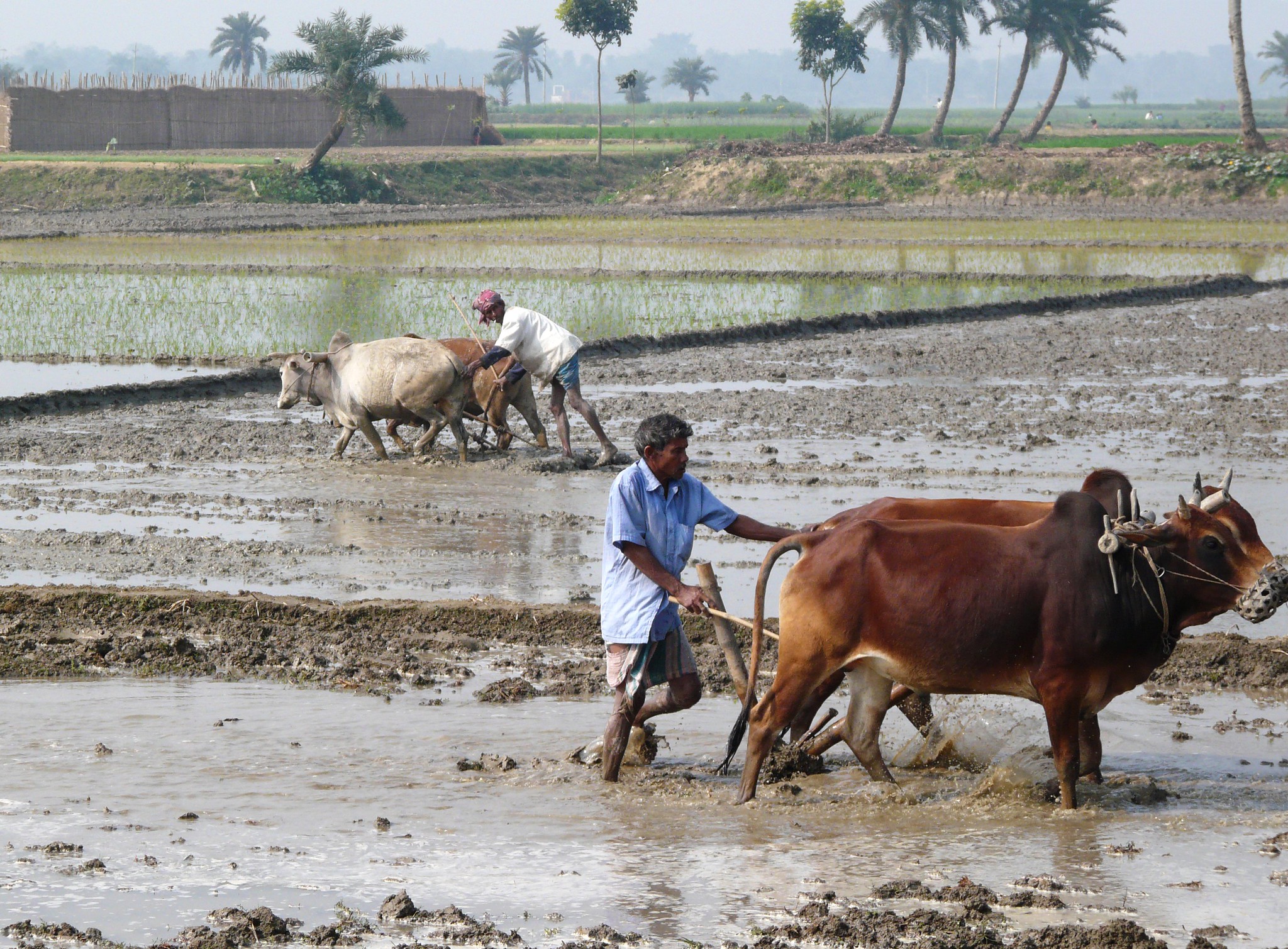United States Agency for International Development (USAID)
Conservation agriculture practices revive saline and sodic soils
 Environmental health and biodiversity
Environmental health and biodiversity
Evidence suggests conservation agriculture can maintain the sustainability of agri-food systems in regions impaired by soil salinity and sodicity.
Afghan wheat landrace shows promise for rust resistance
 Environmental health and biodiversity
Environmental health and biodiversity
Genetic analysis of the Afghan wheat landrace KU3067 reveals resistance to leaf rust and stripe rust, which can be used to develop further disease-resistant wheat varieties.
New CIMMYT maize hybrid available from South Asian Tropical Breeding Program
 Innovations
Innovations
CIMMYT is offering a new improved maize hybrid to partners, to scale up production for farmers in the region.
Growing confidence in the maize business
 Capacity development
Capacity development
Agricultural businesses are investing in maize to reduce Nepal’s reliance on imports of the crop and to improve the experiences of farmers.
Nepal Government endorses new site-specific fertilizer recommendations for rice
 Poverty reduction, livelihoods and jobs
Poverty reduction, livelihoods and jobs
CIMMYT supports the development of site-specific fertilizer recommendations to increase rice productivity in Nepal.
Worsening food insecurity calls for stress-tolerant seeds
 Climate adaptation and mitigation
Climate adaptation and mitigation
Source: The Kathmandu Post (6 Aug 2022)
Climate-resilient seeds can help sustain Nepal’s agricultural productivity and crop development, experts say.
Earlier wheat planting will boost yields in eastern India
 Innovations
Innovations
Adjusting the sowing dates for wheat in eastern India will increase untapped potential production by 69%, new research shows, helping to ensure food security and farm profitability as the planet warms.
Researchers use storytelling to evaluate women’s agency in agricultural production
 Capacity development
Capacity development
A study in India highlights who does what in wheat farming to support the design of gender-responsive interventions in the region.
Cereal seed value chains in Nepal
 Nutrition, health and food security
Nutrition, health and food security
A new study provides deeper insights into improving the performance of the country’s rice and maize seed value chains.
New CIMMYT maize hybrid available from the Latin America Breeding Program
 Innovations
Innovations
CIMMYT is offering a new improved maize hybrid to partners, to scale up production for farmers in the region.
Managing seeds and agricultural losses in the wake of extreme climate events: Lessons from Nepal
 Climate adaptation and mitigation
Climate adaptation and mitigation
Assessment of floods in Nepal in October of 2021, which affected seed availability, give clues about actions to mitigate the impact of similar climate shocks on smallholder farmers.
Getting to win-win: Can people and nature flourish on an increasingly cultivated planet?
 Climate adaptation and mitigation
Climate adaptation and mitigation
Faced with dramatic biodiversity loss and a growing population, should farmers “share” or “spare” land? Agricultural scientists weigh in, yielding a new perspective.
The race against time to breed a wheat to survive the climate crisis
 Climate adaptation and mitigation
Climate adaptation and mitigation
Source: The Guardian (12 Jun 2022)
CIMMYT scientists are using the biodiversity of forgotten wheat varieties from across the world to find those with heat- and drought-tolerant traits.
A climate-smart remodeling of South Asia’s rice-wheat cropping is urgent
 Environmental health and biodiversity
Environmental health and biodiversity
Multiple studies show conventional farming practices degrade soils, deplete aquifers and feed rampant greenhouse gas emissions.
